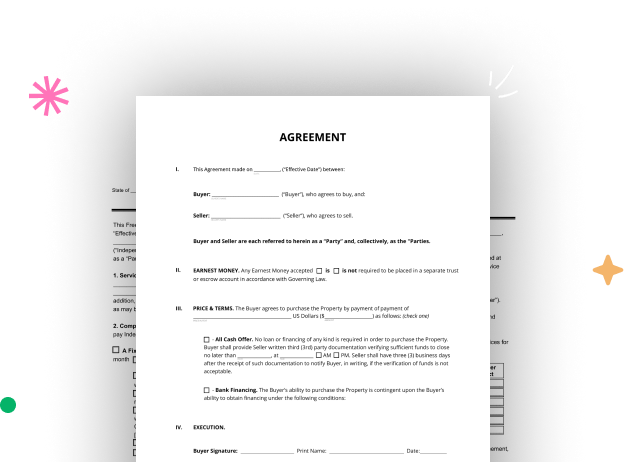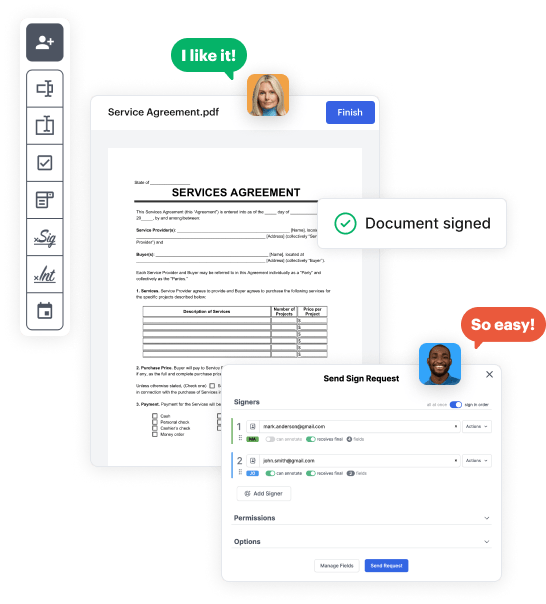

First, log in to your DocHub account. If you don't have one, you can simply sign up for free.
Once signed in, access your dashboard. This is your main hub for all document-based processes.
In your dashboard, choose New Document in the upper left corner. Select Create Blank Document to craft the Professional Brick Mason Contract from a blank slate.
Place various items like text boxes, photos, signature fields, and other elements to your form and assign these fields to specific users as required.
Refine your form by including instructions or any other vital tips leveraging the text feature.
Meticulously examine your created Professional Brick Mason Contract for any typos or essential adjustments. Leverage DocHub's editing features to polish your document.
After finalizing, save your file. You may opt to retain it within DocHub, export it to various storage platforms, or send it via a link or email.